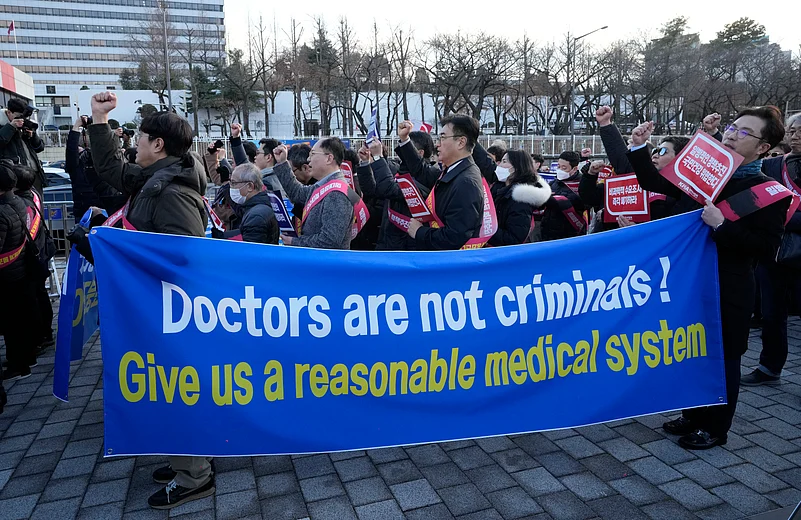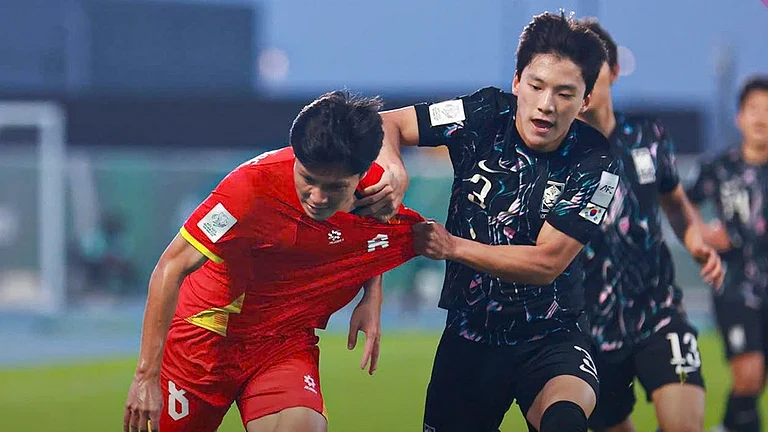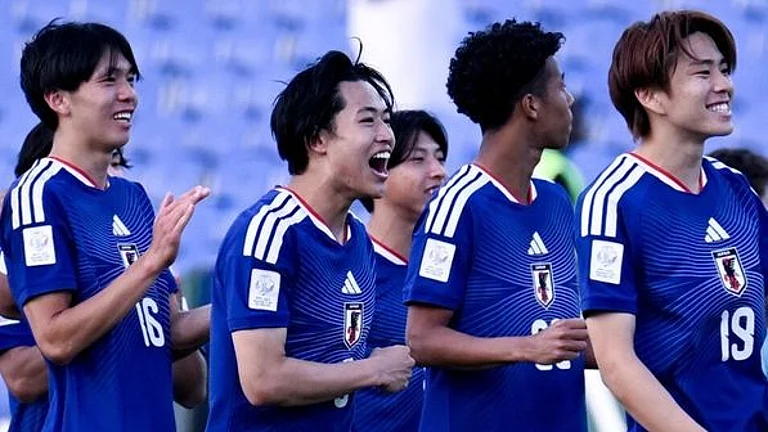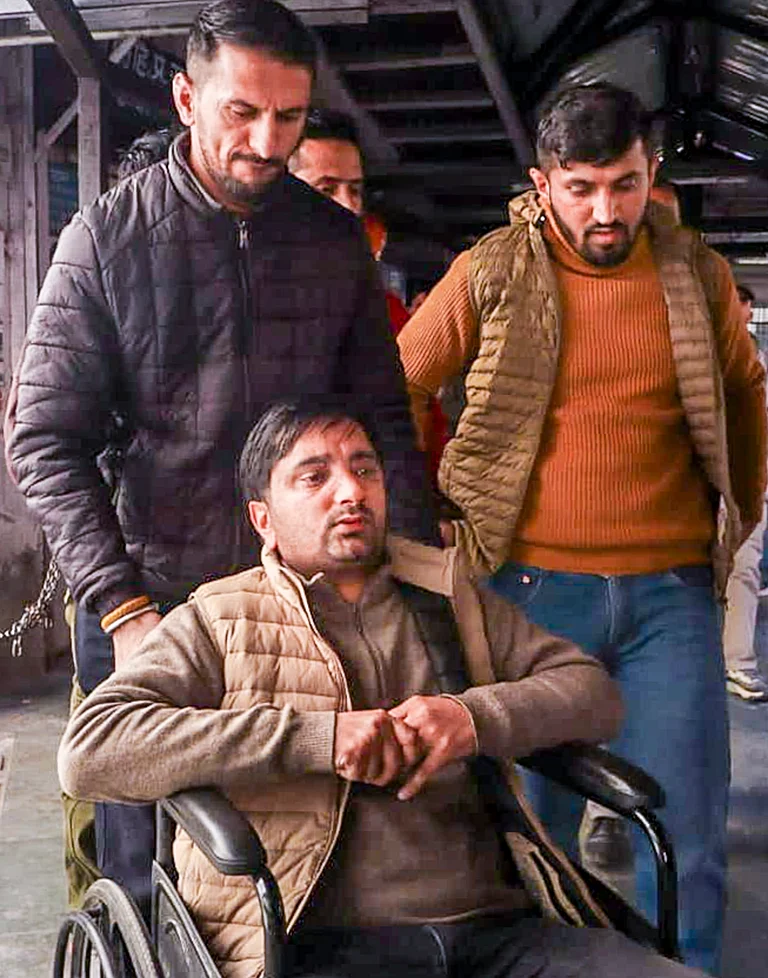South Korean police said on Friday they searched the office of the hard-line incoming leader of an association of doctors and confiscated his mobile phone as he faces accusations that he incited the protracted walkouts by thousands of medical interns and residents.
The development could further dim prospects for an early end to the strikes.
The office of Lim Hyun-taek, who is to be inaugurated as head of the Korean Medical Association next week, called the raid politically motivated and questioned whether the government is sincere about its offer for dialogue to end the strikes.
Police said they sent officers to Lim's office in Seoul and residence in the southern city of Asan on Friday to confiscate his mobile phone and other unspecified materials.
Lim is one of five former or incumbent Korean Medical Association officials who have been under police investigation for allegedly inciting and abetting the strikes. In mid-April, two of them had their medical licenses suspended by health authorities.
Lim's office said in a statement that the police raid was “a clear retaliation and political suppression" of Lim. It said the government should have not orchestrated the raid if it truly wants talks.
More than 10,000 interns and residents at major university hospitals walked off the job in February in protest at the government's plan to increase the country's medical school enrollment quota by 2,000 starting next year, from the current cap of 3,058. Their walkouts have caused numerous cancellations and delays of surgeries and other medical treatment at their hospitals.
In the face of growing public calls to find a compromise to end the strikes, the government said last week it could adjust its plan by allowing universities to determine whether to lower planned admissions by up to 50 per cent next year.
This means the number of newly recruited medical students next year could be as low as 1,000
But Lim said doctors want the government to completely scrap the enrollment hike plan, saying they won't allow any increase in the number of students. He also urged the government to fire top officials involved in the formulation of the admissions plan.
Officials say the plan is aimed at adding more doctors because South Korea has one of the world's fastest aging populations and its doctor-to-population ratio is one of the lowest in the developed world.
Doctors say schools aren't ready to handle an abrupt increase in students and that it would ultimately undermine the country's medical services. They say the government plan would also result in doctors in greater competition performing unnecessary treatments. But critics say those aren't the real reasons behind their protests and that they simply worry the supply of more doctors would lead to lower income for them in the future.
South Korea's current medical student enrollment cap has been unchanged since 2006, with doctors thwarting previous government attempts with vehement protests.
Deepening worries about the medical impasse, senior doctors at the university hospitals where the striking junior doctors worked have threatened to resign in support of the strikes. Their associations recently decided to let senior doctors take a day off every week, citing the overwork caused by the departures of their junior partners.
In a briefing Friday, senior Health Ministry official Jun Byung Wang called the senior doctors' moves “regrettable.” He urged them not to leave their patients, though the government hasn't found any hospitals planning to accept their resignation offers.


























